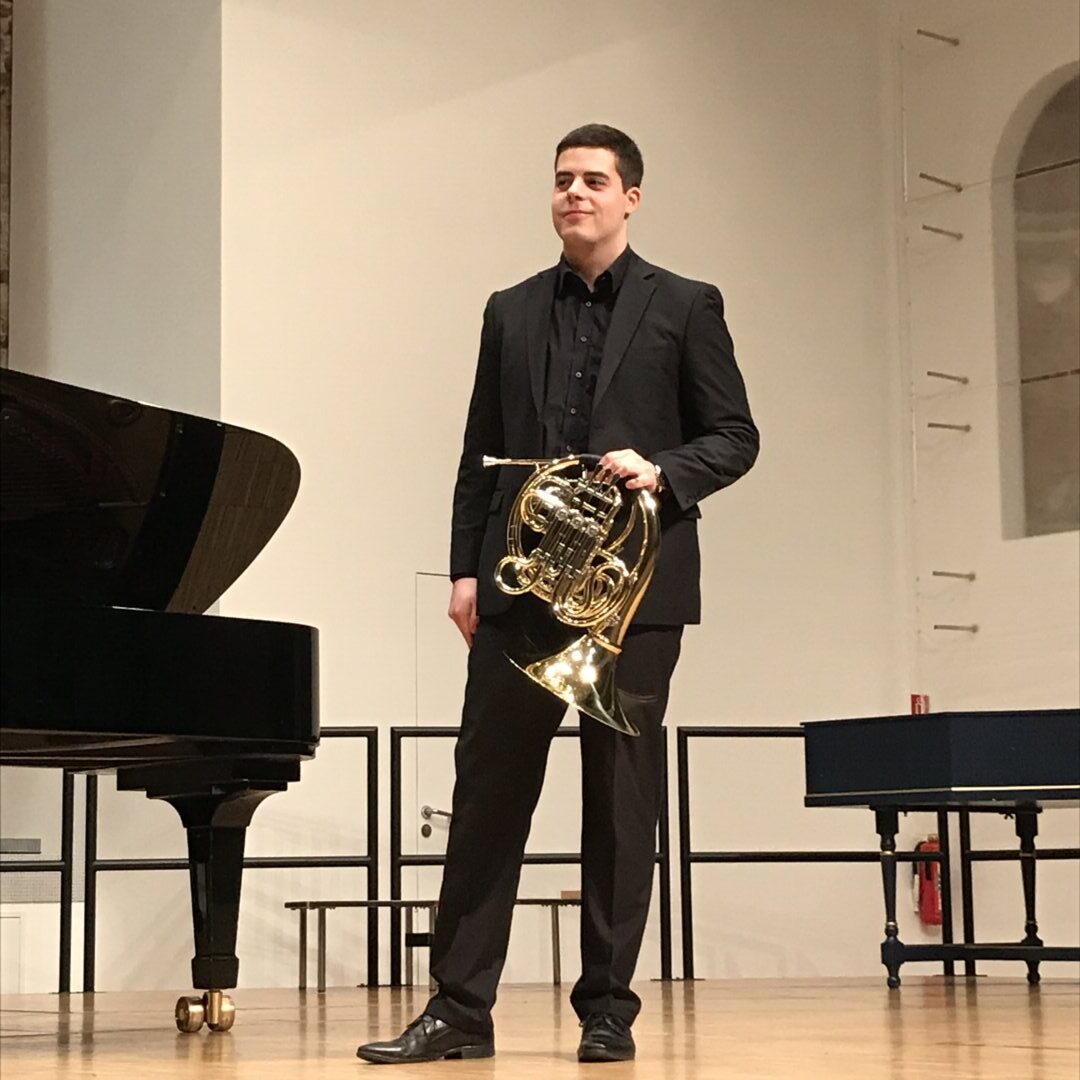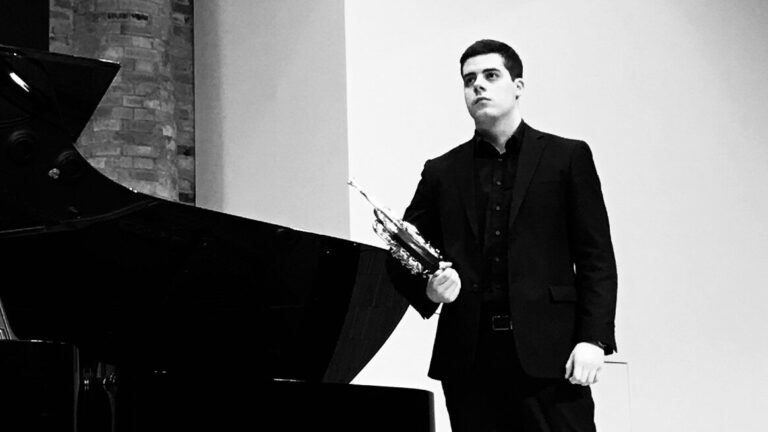“I still can’t believe it!” says French horn player László Gál in an interview with Papageno. “I’ll believe it at the first rehearsal.” After a two-day audition in Berlin, the 24-year-old Budapest-born musician was chosen to occupy the position of 3rd horn in the Berlin Philharmonic. Gál will be the first Hungarian to join the eight-member horn section. Their Facebook page featured a photo of Gál right after the decision, and offered a tribute to the young player after his win on 21 January.
Gál gives credit to Tibor Maruzsa’s horn training during his high school years, and his Universität der Künste Berlin (UdK) teacher Christian-Friedrich Dallmann for his training and pedagogy – which still continues. However, Gál clearly has inherited the French horn gene, if there actually is one: he is László Gál III, having the same name as his grandfather (formerly principal horn in the Hungarian Radio Symphony Orchestra) and his father (principal horn in the Hungarian National Philharmonic Orchestra) who have been respected musicians in Budapest for decades. To top it off, his sister, a high school student, also studies the French horn with Maruzsa.
Gál, who competed against 17 other candidates during two separate audition rounds, will start rehearsals with the Philharmonic in the Spring. As is the ensemble’s tradition, he was granted a two-year trial contract, although the orchestra could place their votes after one year.

Two other Hungarians play in the Berlin Philharmonic: trumpeter Tamás Velenczei and violinist Zoltán Almási. “So, we are three Hungarians who play in this orchestra now,” says Gál. “And the trumpet player used to play with my grandfather in the Hungarian Radio Symphony, and also with my father in the Hungarian National Philharmonic Orchestra, and now with me — I’m the third generation he’s playing with.”
Because the French horn has an exceptionally wide range, a typical symphony horn section is divided into two smaller sections: the high-note players (1 and 3) and the low-note players (2 and 4), Gál explained. “I prefer to play high” so the number 3 position quite suits him. The two audition pieces he had to prepare were selections from Mozart’s Horn Concerto No. 4 and R. Strauss’ Horn Concerto No. 1. “Afterwards, I had about 20 minutes of waiting outside [the building]. I was really nervous, but then the orchestra started to come out – coming right to me, hugging me. This was the way they congratulated me – almost without words. But I knew [I was chosen], because then they did say ‘you played amazingly’, ‘well done’, things like that.”
At present, Gál holds a horn seat in Berlin’s Komische Oper’s Orchestra, a position he had for a mere three weeks before learning about the auditions for the Philharmonic. With no reservations, he jumped at the chance. Everything happened so fast that he still repeats the sentence: “It’s quite unbelievable!” Although, it’s not surprising coming from someone whose father practiced with him every day, even if he had had a long day at school and just had a lesson with his teacher. “I wasn’t so happy about that back then, but I am now, because it really helped me a lot.”
This is a story that describes the real meaning of “serendipity”: that opportunity favors the prepared mind. In this case, it’s a thoroughly prepared horn player — from the day he was born into the Gál family.











